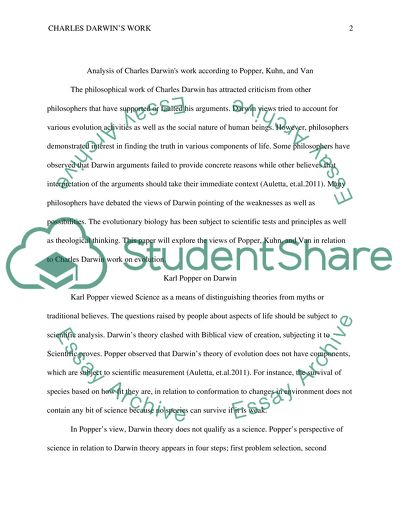Cite this document
(“Charles Darwin's Work according to Popper, Kuhn and Van Fraassen Essay”, n.d.)
Charles Darwin's Work according to Popper, Kuhn and Van Fraassen Essay. Retrieved from https://studentshare.org/philosophy/1451269-provide-an-analysis-of-charles-darwin-s-work
Charles Darwin's Work according to Popper, Kuhn and Van Fraassen Essay. Retrieved from https://studentshare.org/philosophy/1451269-provide-an-analysis-of-charles-darwin-s-work
(Charles Darwin'S Work According to Popper, Kuhn and Van Fraassen Essay)
Charles Darwin'S Work According to Popper, Kuhn and Van Fraassen Essay. https://studentshare.org/philosophy/1451269-provide-an-analysis-of-charles-darwin-s-work.
Charles Darwin'S Work According to Popper, Kuhn and Van Fraassen Essay. https://studentshare.org/philosophy/1451269-provide-an-analysis-of-charles-darwin-s-work.
“Charles Darwin'S Work According to Popper, Kuhn and Van Fraassen Essay”, n.d. https://studentshare.org/philosophy/1451269-provide-an-analysis-of-charles-darwin-s-work.


